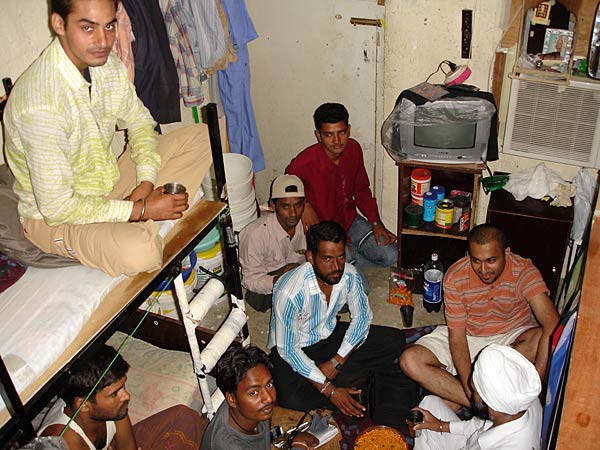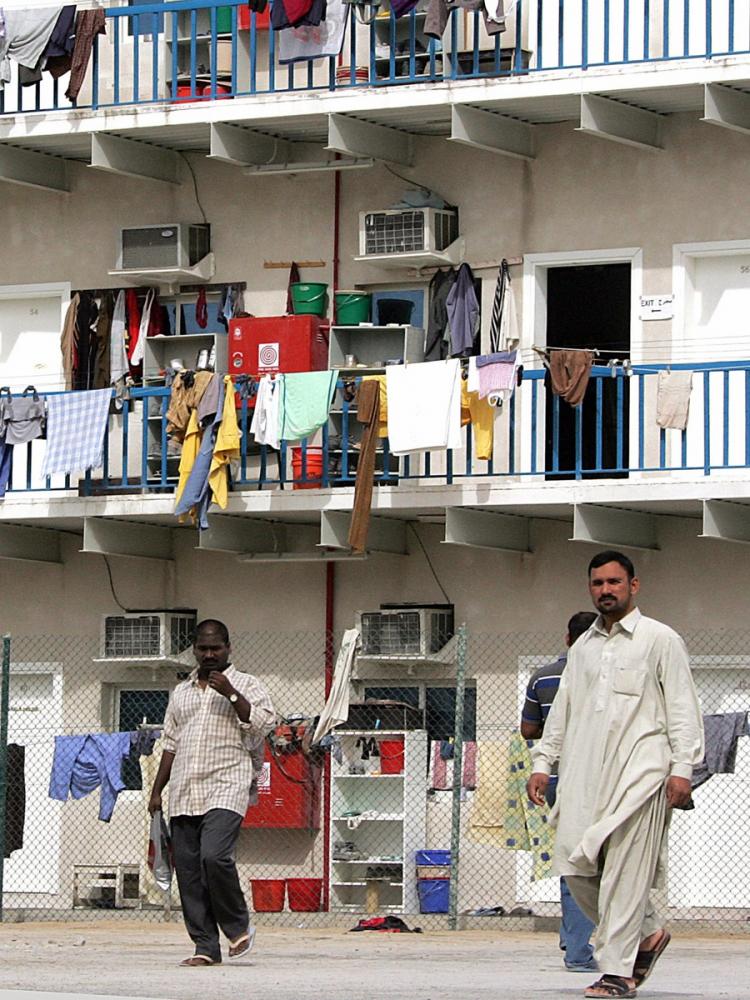Behind the glitz and glamour of the dream city of Dubai, there is a stark reality that most of Indian expatriates working for meagre pay are not able to afford proper housing and have to share rooms and crowded living spaces with other tenants. This is a fact despite falling rents for houses.
Though overcrowding in properties is illegal in Dubai, but many expatriates have opted to share their flats and villas in order to save money on rent and the people who risk fines from municipality inspectors, commonly referred to as “baladiya”, are workers who don’t make seven-figure salaries, especially individuals who barely earn AED6,000 a month.
Despite a drop in residential rents by about 14 per cent in Dubai since 2014, expatriates continue to live in shared accommodation.
Jesse Downs, managing director of Phidar Advisory, told a local daily, “There is a large and critical portion of the workforce that remains priced out of the market. Housing costs have decreased recently, which will invariably change the nature of shared accommodation, but it seems unlikely that it will significantly reduce the total number of shared households.”
Lukman Hajje, CCO of Propertyfinder Group, said, “While we don’t condone shared accommodations, hundreds of such properties are still being advertised online. One doesn’t have to search too hard to find hundreds, if not thousands of partitioned rooms or extra bed space advertisements on other popular UAE websites.”
In November 2016, there were estimates that, while the majority of Dubai’s 2.6 million population are willing to spend AED100,000 a year or less on housing, only 25 per cent of the residential units available for rent are within the price range.
Hajje said, “But most of these are expensive if your income is under AED6,000 per month and people within this segment struggle to find affordable legal accommodation virtually anywhere in Dubai.”
He added, “Sharjah, where the medium advertised price for a two-bedroom apartment is currently AED55,000 per year and Ajman where the medium advertised two- bedroom apartment is AED 38,000 per year are popular choices for the lower income workers, many of whom commute daily to Dubai.”
Residents who receive below AED6,000 a month include those who work as waiters, customer service personnel, teaching assistants, hotel room attendants, room boys, housekeepers, janitors and cleaners, aside from construction employees.
He also pointed out that Dubai has done a lot to address the affordable housing shortage in the past few years. In fact, he noted, many of the apartment blocks that have been pumped out into the market recently are aimed at the lower to middle-income segment.
“In addition to the traditional affordable locations such as Discovery Gardens and International City, there are numerous projects in Dubai Land, Dubai Sports City, JVC (Jumeirah Village Circle), DSO (Dubai Silicon Oasis) and DIP (Dubai Investment Park) just to name a few. Thousands more are planned in Dubai South and elsewhere across the city,” he concluded.




